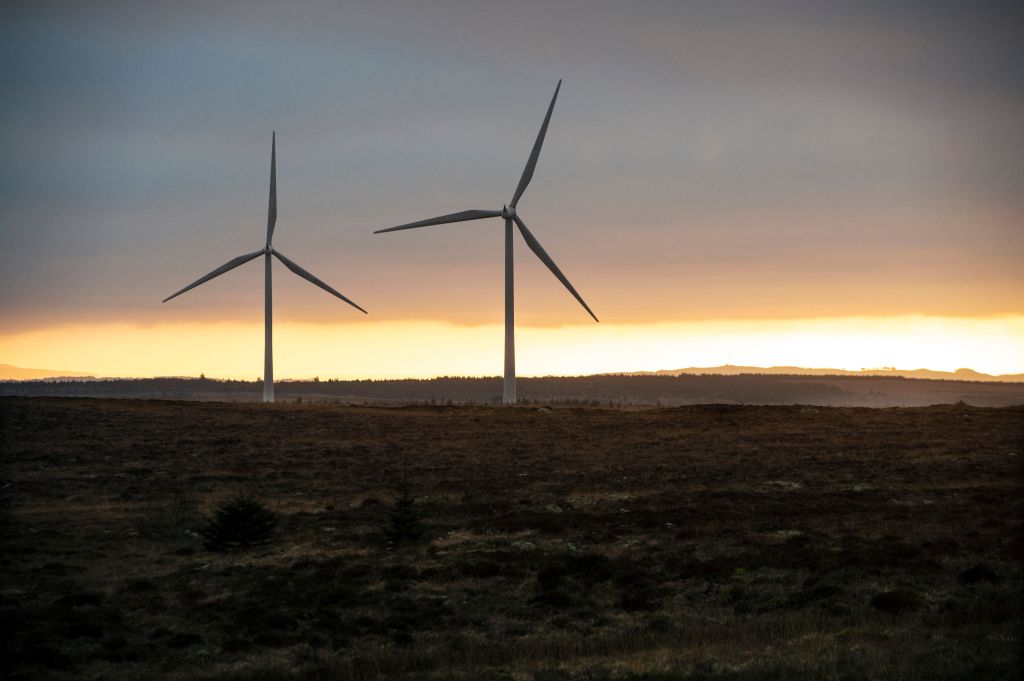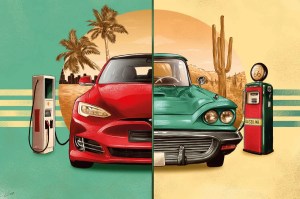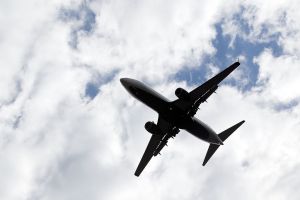Recently, I came down with a severe case of climate anxiety. Not because I was worried about global warming but because the globe wasn’t getting warm enough.
It has been an unseasonably cold spring here on the East Coast. As recently as two weeks ago, a winter storm thrashed the Northeast, while last week the temperature here in Virginia kept getting stuck the 50s. Of course, our science-positive betters insist that a single spell of cold weather can’t be used to challenge the climate change “consensus.” But then they also seize upon every drought, heat wave, wildfire, hurricane, tornado, flood, derecho, hailstorm, rainstorm, power outage, riot, and coup in Myanmar to argue in favor of climate change.
So no wonder some are feeling a little on edge. “Climate anxiety” isn’t just some snarky conservative meme; it’s the hot new affliction to have now that the Covid BA.2 variant has failed to deliver. And contra my own experience, it’s exactly what it sounds like: the nagging fear that greenhouse gases are slowly deep-frying the planet.
It began with a study published last year in the Lancet, which found that 59 percent of respondents across 10 countries were extremely worried or very worried about climate change, while 45 percent said it was impacting their daily lives. The survey sample consisted mostly of young people, who worry their future is under existential threat. Cue Greta Thunberg glowering from off a shrink’s couch: anyone who’s spent time around Gen Zers knows they take climate change very seriously.
From there, the media began to catch on, declaring climate anxiety the “next mental health crisis” and calmly comparing it to post-traumatic stress disorder. News outlets hauled out “ecotherapists” who specialize in something called “climate-aware therapy.” And if that was too much, you could always check in to what NPR called a “climate café” to share your carbon-neutral feelings with likeminded worrywarts (isn’t that just Starbucks?).
But wait. Just as America was finally coming to terms with its ecopsychopathology, in barged Scientific American with an intersectionality tape measure. “Climate anxiety,” the prestigious journal declared, “is an overwhelmingly white phenomenon.” Here was a dire finding. Progressives had long warned that climate change would disproportionately impact people of color, if only because progressives had long warned that everything would disproportionately impact people of color. Yet somehow a majority of climate anxiety sufferers were white.
How could this be? Was it even possible that, as Scientific American dared to suggest, worrying about the climate might be distracting from other ills like “slavery, colonialism, ongoing police brutality”? In fairness, most people who worry about those things are white too. But climate anxiety does have the distinct shriek of the Karen about it.
Consider a recent New York Times profile of a climate anxiety sufferer named (ironically) Alina Black from (less ironically) Portland, Oregon. Her story reads like a kind of psychological horror flick for the suburbo-bourgeois: “It would hit Alina Black in the snack aisle at Trader Joe’s, a wave of guilt and shame that made her skin crawl.” And: “In the early-morning hours, after nursing the baby, she would slip down a rabbit hole, scrolling through news reports of droughts, fires, mass extinction. Then she would stare into the dark.”
One simply cannot open up the newspaper these days without reading about another mass extinction. (Is every Times reporter now just Taylor Lorenz running errands?) Yet it’s those trips to Trader Joe’s that really make you feel for the climate anxious. “Something as simple as nuts,” sighs the Times. “They came wrapped in plastic, often in layers of it, that she imagined leaving her house and traveling to a landfill, where it would remain through her lifetime and the lifetime of her children.”
And that’s the nub of the thing. Climate anxiety is supposedly grounded in good science, yet in the end it’s nothing so much as anti-modern and anti-civilization. It postures as progressive while turning progress into a mortal sin. Building anything becomes a crime against the environment. Having children furthers the plague that is humanity. The very trappings of life become triggers of fear and guilt. In its terminal stage, you can’t even enjoy a mundane trip to the grocery store without having Cassandra-like visions of a cashew-based apocalypse.
This is what happens when you spend decades haranguing people for destroying the planet. It’s what happens when you refuse to admit any countervailing good news, starting with the fact that American greenhouse gas emissions have been going down for years (partly thanks to fracking!). Throw in the demanding nature of modern society generally — the constant barrage of updates and notifications, the endless panics and fears — and it’s no wonder so many are feeling majorly bummed out.
Yet amid all this hand-wringing, I can’t help but think that my own experience is being marginalized, even erased. I have climate anxiety too, remember, and not just about the cooler weather. I’m anxious for the West Virginia communities hollowed out by the campaign against fossil fuels, the wage slaves in Africa mining cobalt for electric car batteries, an entire young generation haunted by abusive scaremongering.
Thankfully, though, I’ve been doing better. The weather is at last getting warm, and it feels fine.


















